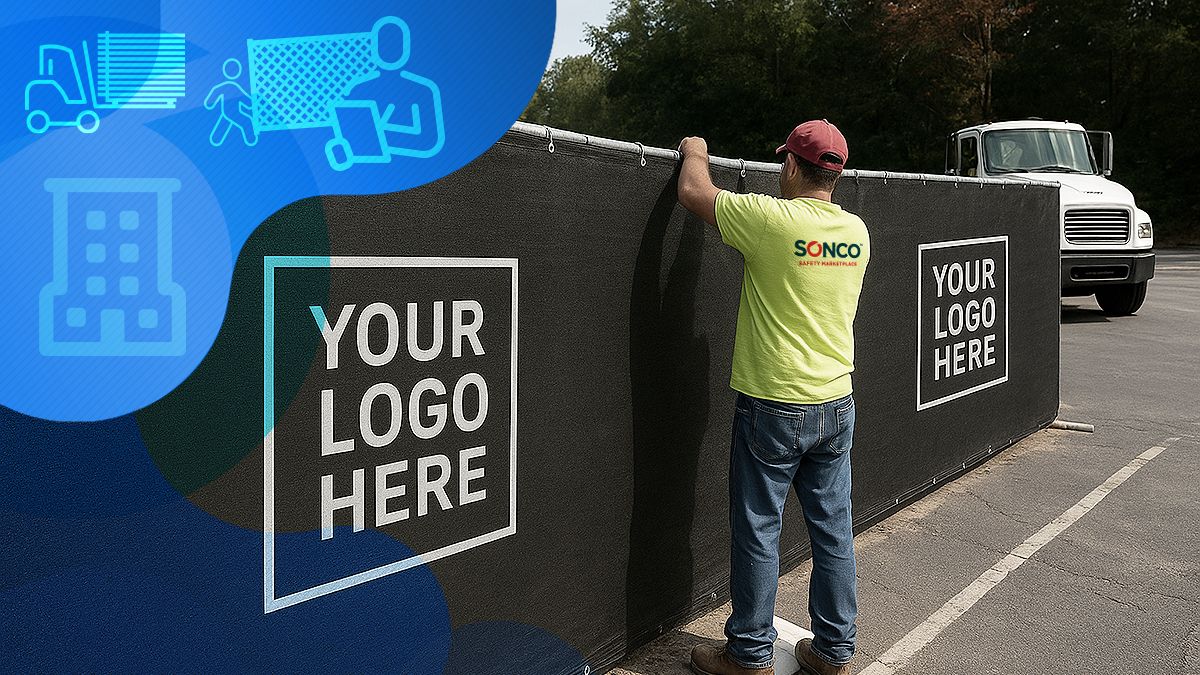How to Start a Construction Company
Learn the essential steps to launch your construction company successfully! Don't skip the vital prep work — it's the key to your long-term success.

Preparing a business plan is the most recommended step in starting any company. Business plans force entrepreneurs to examine every aspect of their startup.
They require answers to difficult questions about marketing and money. They take time to research and write. That's why only 35% of business owners finish a business plan.
However, anyone starting a construction company should think twice before skipping the planning process. Entrepreneurs with a business plan are 260% more likely to follow through with starting a business.
For construction companies, only 36.4% will be in business after five years. Of those still in business, 70% will have business plans.
Business plans do not have to be dozens of pages with hundreds of charts and graphs showing cash flow projections and equipment depreciation. But they do need to answer some basic questions.
The following guide focuses on the critical steps of how to start a construction company.
Starting a Construction Company
You'll need to answer a few basic questions before collecting data to write a business plan. For example:
Will the company specialize or be a general contractor?
Subcontractors such as plumbers or electricians have a 20% to 30% profit margin, while general contractors average about 10%. The difference in margins is because subcontractors usually have smaller contracts with higher margins. General contractors have larger contracts with smaller margins.
Will the business offer residential or commercial services?
Residential and commercial contracts operate differently. Residential jobs are usually small, but homeowners will make a deposit before work begins. Commercial contracts have larger dollar amounts with longer lead times.
Commercial companies do not make deposits. Instead, you invoice monthly and wait for payment. Commercial construction companies often need an alternative revenue source to cover expenses while waiting for the initial payment.


What licenses and insurance are required?
Insurance is essential for anyone starting a construction company. Depending on the type of construction, you may need some or all of the following:
- General Liability Insurance. Protects against worksite accidents, property damage, or injuries.
- Property Insurance. Covers property damage caused by theft or natural disasters. It also protects against client injuries while on your premises.
- Vehicle Insurance. Carry vehicle insurance if the company owns vehicles or rents heavy equipment.
- Workers' Compensation Insurance. Employers contribute to a compensation fund to cover the costs associated with a workplace injury.
- Unemployment Insurance. Employers are required by law to contribute to state unemployment insurance to assist employees who may lose their jobs without cause.
- State Disability Insurance. State disability insurance operates much like unemployment insurance and workers' comp. If an employee suffers a long-term disability, they can file for financial assistance from the state.
You will need an operating license. Every jurisdiction is different, so you should check with city, county, and state agencies for licensing requirements and costs.
You should also check the registration requirements for starting a business at the federal, state, county, and local levels.
Having answered these basic questions, you are ready to write a compelling business plan.
Drafting a Business Plan
A business plan serves multiple purposes. It is a strategic tool that keeps your business on course. It's also a document that can be used to acquire funding, whether it be a loan, investor dollars or other financing.
An executive summary usually appears at the beginning of the plan. It is a short two-page synopsis of what the plan contains. The summary is written after the business plan is complete to ensure an accurate reflection of the plan's contents.
Company Overview
For those with an established business, the company overview presents the company's history. It discusses the following:
- Who started the company
- When it was established
- What it does
- What sets the company apart from competitors
- Why it is successful
- What is the company name
For those starting a contracting business, the information can be quickly presented:
EZ Construction is a sole proprietorship owned by Jack Dawson. It will begin operations in late 2024, offering general contracting services to the residential market in the greater Wichita area. It will specialize in kitchen and bath remodeling. Unlike competitors, EZ Construction will include interior design assistance.
The more focused the content, the faster a loan officer can extract the information needed to approve a loan or an investor can agree to fund your company.
Market Analysis
People wanting to start a home building company either skimp on the market analysis or spend too much time doing research. The market analysis section should demonstrate your understanding of the region you plan to work in. It may take a few internet searches, but your market analysis should contain the following:
- The number of homes
- The average age of the home
- The average wait time for starting a remodeling project
- The average cost of a kitchen or bath remodel
You'll need to include information on your primary competitors and why they've been successful.
Commercial market analysis should include similar data. It should discuss the market growth in your region and highlight the segments with the highest and lowest growth potential. This analysis is especially important if you plan to focus on a subset such as office buildings or apartment buildings.


Business Structure
A crucial component of how to start a construction business is deciding on the type of business entity.
A business entity defines how a company is structured for legal and financial purposes. The decision will have long-term consequences, so speak with an attorney or financial advisor to understand the ramifications of your decision.
In the United States, there are four types of business structures.
- Sole Proprietor
- Limited Liability Company
- C-Corporation
- S-Corporation
Each structure has strengths and weaknesses that should be evaluated before registering your business.
- Sole Proprietor. Many construction entrepreneurs opt for a sole proprietorship. However, sole ownership means you and the company share assets and legal responsibilities. If the business defaults on a loan, you are responsible for repaying the debt. Banks can seize your personal assets to cover the debt.
- Limited Liability Company (LLC). An LLC is a relatively new entity designed to reduce the personal risk associated with being a sole proprietor. As an LLC, personal assets and debts are separate from business finances. While it protects the individual, it can make raising investment capital difficult.
- C Corporation. C Corps are the traditional corporation entities. They protect the owners from personal risk and divide ownership among shareholders. The downside is the paperwork and higher tax rates. The company is taxed on its income, and the shareholders are taxed on dividends.
- S Corporation. S Corps have limits on the number of shareholders. They cannot have more than 100 shareholders, and they must all be US citizens or residents. S Corps do not pay taxes. The taxes pass through to the shareholders.
Deciding on the business structure is only part of the legal requirements for starting a home building company. You must still obtain the appropriate licenses and certifications.
Products and Services
Now that you've covered many of the legal components of how to start a contracting business, it's time to turn to your products and services.
Commercial and residential construction are significantly different. They differ in many respects -- from how you market your services to how you price them.
Residential Construction
Residential construction, whether remodeling existing structures or building new ones, typically involves smaller projects with shorter delivery schedules.
You are working with homeowners with strong opinions and minimal experience. If you specialize, you are dealing with general contractors. This environment is much different than commercial construction.
You will need to outline how you plan to price your services and how you expect to receive payment.
- Will your contracts require a deposit or a lump sum payment?
- Will you quote a project-level price or use a time-and-material calculation?
Whatever you decide, you will need to explain the process in detail.
Commercial Construction
Commercial construction can include updating existing buildings and building new ones. As a general contractor, your responsibilities expand to include maintaining safety measures such as acquiring temporary fencing to protect workers and residents. You interact with various subcontractors, architects, engineers, and city planners. Your contracts may include penalties for failing to meet schedules.
- Are you planning to restrict your business to multi-family dwellings or office buildings?
- Do you plan on limiting the size of jobs you bid on?
In locations where bonding is required, the size of the job may impact the cost.
Sourcing Construction Materials
Whether residential or commercial, you need to discuss how you plan to source materials and subcontractors. Depending on the contract type, you may need to use different vendors.
These factors can significantly impact your profit margins. You may also want to include special relationships, such as being part of the SONCO Club, which offers members discounted prices, coupon codes, and expert advice on jobsite security.
SONCO provides a one-stop shop for many construction supplies, including temporary fences, fence screens, mandatory signage, personal protection equipment, and traffic safety supplies.
This means you can streamline your purchasing process, obtaining many supplies in a single transaction while enjoying discounts, coupons, rebates, and other perks.
The SONCO Club is FREE to join, and you'll receive 10% off your first purchase with the coupon code CLUB10. This discount is particularly beneficial when buying inventory for your new construction company.
Depending on your pricing strategy, you might choose to wait until you receive the first deposit from your client before making a purchase on the SONCO website. With expedited delivery available anywhere in the US, you won't need to use your initial funds for supplies, freeing up resources to invest in other areas of your business.


Worker Safety
If you work in construction, you know the industry is one of the most dangerous. Without proper protection and safety measures, a work-related accident can mean the end of owning a construction company.
As part of a business plan, you should include what measures you will take to ensure worker safety, such as perimeter fencing and PPE.
SONCO Club members have the assistance of experts in job site safety to better instruct what safety measures are necessary to ensure compliance with OSHA standards for construction safety.
Marketing and Sales
This section explains how you plan to promote your construction company. How to start attracting potential customers or clients.
- Will you use direct mail or social media?
- Will you offer discounts?
- Are you counting on word of mouth?
Before setting out a marketing strategy, you need to identify your value proposition, which identifies why your services bring more value to your customers than competitors. Maybe you'll offer a warranty period or include design services in a remodel. Will you offer a benefit or perk for every referral?
Whatever the value proposition, it should appear in your marketing and sales materials, become the differentiator between you and the competition, and be prominently displayed on your website. Websites are great places to display pictures of your work, provide appointment scheduling, and answer questions.
Sales Strategies
The best sales strategy is a follow-up strategy. If you participate in a home improvement show, make sure you follow up on each lead. If someone asks for a call back through your website, call them. Not tomorrow or next week but immediately.
Investing in software that tracks each contact and records each follow-up is the best way to ensure that every potential customer receives personal attention. Homeowners may not be looking to start a project immediately, but they will never consider your business if you don't contact them.
Commercial contractors should follow up on any bid they submit. It doesn't matter whether you win or lose. What is important is learning how you ranked against the competition. Talking to the project manager or procurement agent can help build relationships and provide valuable insight into the bidding process.
No matter the strategy, you will need to present how you plan to convert leads into contracts. Incorporating technical tools into the plan can attract investors looking for forward-looking companies.
Financial Plan
Startup construction companies lack the three to five years of financial data that analysts and underwriters want to see. However, you can rely on your experience to develop a plan that outlines the following information.
- Income statement or forecasted income. You will need to explain how you arrived at the projected income. How many contracts are needed to break even or show a profit?
- Cash flow forecasts or statements. These are monthly projections of when payments will be received compared to expenses. Negative cash flow will need to be explained. Identifying ways to cut expenses, such as renting rather than buying, can help analysts understand your projections.


How Much Does It Cost to Start a Construction Company?
The cost of starting a construction company varies significantly depending on the type of construction and the company's location. State, local, and city jurisdictions have different fees for licenses and business registration.
Some construction-specific licenses may require passing a test before granting certification. These variables impact the cost and the timeline for starting a construction business.
While waiting for the paperwork to be completed, anyone owning a construction company should spend time looking at ways to maximize revenue and minimize costs.
For example, temporary perimeter fencing is an asset that often sits unused in storage. Consider renting it out to other construction companies or event organizers.
Keep reading to learn more about branching out your construction company into a temp fence rental business as well.
Trend now

Fence Privacy Screen: The Missed Revenue for Rental Companies
Grow profits by over 100% with fence privacy screens. See the numbers, customer benefits, and how SONCO makes it simple.

Greener Shows, Greater Impact: Sustainability in the Live Music Industry
In a competitive market where experience and perception impacts attendance, sustainability is a business advantage as well as a moral responsibility.

Parking Lot Safety Tips for Venues and Arenas
A safe and efficient parking lot sets the tone for the entire event experience, starting from the moment guests arrive.





